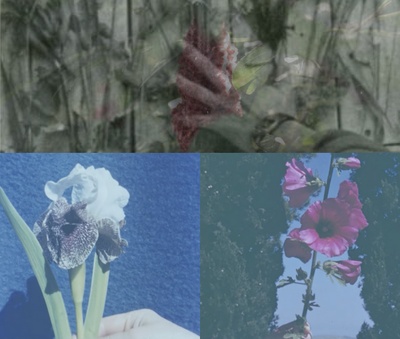Seeds of Liberation: Film screening and dinner for Palestine
On Friday the of 2nd May from 19:00 onwards, we warmly invite you to an intimate and communal film evening and dinner at Astrid Noacks Atelier (ANA), in which we reflect on the questions of soil and land, in the Danish and Palestinian context. The film screening is curated in the context of the exhibition in ANA called 'Reflections on soil and agriculture' by the film maker Maia Torp Neergaard.
Through the chosen films we would like to seize the opportunity to initiate conversations and reflections on the land question in Palestine and shed light on the ongoing genocide that has uprooted and affected people and land so deeply. The inspiration for the curation came from Other Cinemas and particularly Saeed Taji Farouky, who has curated the film programme in London some weeks ago. We see this film screening as an important continuum and an act of solidarity towards those currently struggling against the occupation and genocide.
As we reflect on our own struggles and pathways traveling alongside these communities, one which intersects and converges with other paths, we ask “How can we be good seeds in this world?” How can our activism and work prepare the soil and spread the seeds? What is the impact of our work, in order to be able to nurture and care for our communities? When are our seeds of resistance that we planted along the way sprouting and lead to a blossoming and deep transformation?
We will start the evening with a collective dinner, followed by the three short films:
The Flower Stand Silently, Witnessing (2024)
We Would be Freer (2023)
Ahl El Thara (2025)
The projections are followed by a loosely facilitated conversation drawing on the learnings and inspirations of the film.
The event is donation based all the proceedings will go to the Sameer Project
Dinner, tea, coffee, alcoholic and non-alcoholic beverages will be provided and can be purchased.
We would like to thank Nørrebro Lokaludvalg and the Astrid Noacks Atelier for supporting the event.
----
The Sameer Project
A donation based aid initiative, led by four Palestinians in diaspora, working to supply an emergency reponse and funding to the displaced families in Gaza.
The inititaive was originally formed to secure, purchase, and distribute tents in Southern Gaza.
The Sameer Project also supplies cash envelops on an “as needed” basis to allow families the independence to secure the specific aid they require for themselves.
The organization also supports critical medical cases with treatment, medication, and clinic referrals to those who would otherwise not be able to afford medical intervention. Life saving medication, tests, scans, and doctor visits are out of reach monetarily for most all Gazans as the closed borders have created extreme scarcity and the number of injures and chrioically sick grow, putting a nearly insurmountable strain on the healthcase infrastructure.
Sted
Astrid Noacks Atelier (ANA)Rådmandsgade 34
2200 Copenhagen
